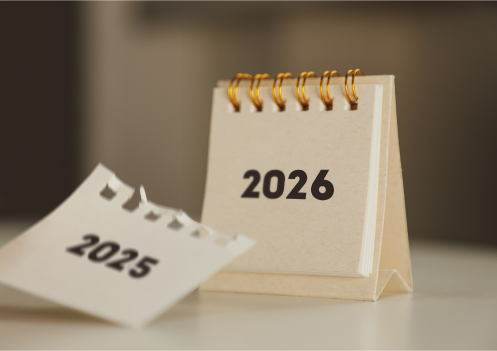Does Buying a Home Still Make Sense?
Home Buying, Interest Rates, Savings
May 30, 2024
With the interest rate on a 30-year mortgage more than doubling over the past few years—to more than 7% today—buying a home has become an even more challenging financial move.
Yet that doesn’t make now a bad time to buy a home if you can afford it, and if it is a good fit for your long-term goals.
Might it cost you less to rent right now? Absolutely. And renting may be the right answer for you right now. But I want to make sure that those of you who want to buy aren’t unnecessarily talking yourself out of it because mortgage rates are so high.
Let’s walk through how to think about all this.
Are you looking to stay put for at least 5 years, preferably 10?
If you have deep roots or are building deep roots where you are, buying is worth considering. If you aren’t sure where you want to be, or you know your career could require a relocation in a year or two or three, then renting makes a lot more sense.
The longer you can envision you want to stay put, the more confidence you should have in a home as an investment. Not like a stock. But as an asset that over time will likely rise in value. The longer you own a home, the more likely it will rise in value.
Do you have a minimum of 8 months of living costs in an emergency fund?
I would feel even better if you had a year’s worth of living costs saved up. This is vital financial security if you are taking on the responsibility of a mortgage. And to be clear, it will also help you secure the best possible mortgage deal from a lender. They like to see you have a cushion!
Do you have at least a 10% down payment?
I want to be clear that I strongly prefer buying a home with a 20% down payment. That’s a key way to qualify for the best mortgage interest rate, which is so very important today. But I also realize that sharp home price increases over the past few years may make 20% too much of a stretch.
Can you afford a 20% increase in your home insurance premium?
In the past few years, the cost of homeowner’s insurance has increased at alarming rates in some parts of the country. Before you shop for a home, I want you to have a clear-eyed estimate of what a solid homeowner’s policy with extended-replacement coverage will cost today. Then add 20% to that cost. I am not saying premiums will rise by 20% in the coming years. But given what is going on with the intensity of bad weather events and rate increases, you need to make sure you could handle a sharp increase.
Okay, if you answered yes to those three questions, and you want to look at buying, let’s talk financial strategy.
Live below your means but within your needs.
This is a game-changer that will have a huge impact on your financial security for decades to come. Your goal should be to buy the least expensive home that meets your needs. What your lender tells you that you can qualify to borrow is irrelevant. I want you to push yourself to find the right house that costs you as little as possible. The reality is that a big chunk of your monthly income is going to go toward the mortgage. Your goal should be to keep that big chunk as small as possible. Maybe that means looking in a different neighborhood or refining your must-haves. Focusing on the most affordable option will give you the financial breathing room that will make life so much easier.
Maybe consider an adjustable-rate mortgage.
If you can afford to buy a home with a 30-year fixed-rate mortgage, that always makes sense. If your financial situation stays steady and interest rates fall, you should be able to refinance. That’s always the safest mortgage move.
Another option is an adjustable-rate mortgage (ARM). With a 5/1 ARM the interest rate is fixed for the first five years, and then after that, it can adjust every year based on the going rates at that point. Right now the initial rate on a 5/1 ARM is around 0.70 percentage points less than the rate on a 30-year fixed-rate loan. That lower payment for the first five years can be tempting.
Here too, the prospect of refinancing if rates come down is key. But you need to be extra careful. What if rates come down because of a recession and your household faces a layoff or reduced hours? You might not qualify for a refi right when it makes sense. Or what if rates don’t fall? Every lender offering a 5/1 ARM will show you the maximum annual adjustment. It can typically be as much as 2 percentage points, and 6 percentage points over the life of the loan. A good exercise is to imagine your ARM rising at least 2 percentage points. Can you handle the monthly payment?
If that gives you pause, now is the time to realize you have options. Is there a less expensive home that you can afford with a 30-year fixed-rate mortgage? Or maybe renting is the better move for you right now.






